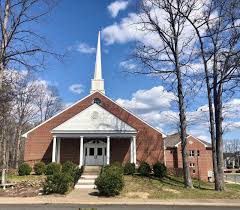When a church or religious organization seeks funding—whether for property purchase, renovation, refinancing, or expansion—it may consider working with church-specific lenders. These lenders specialize in offering financial services tailored to the unique needs of churches and ministries. While this route offers several advantages, it also comes with limitations that need careful consideration. Understanding the pros and cons of church-specific lenders can help decision-makers make informed financial choices.
Pros of Working with Church-Specific Lenders
1. Deep Understanding of Church Operations
One of the most significant advantages of church-specific lenders is their deep understanding of how churches operate. Unlike traditional financial institutions, these lenders are familiar with the seasonal nature of church income, reliance on tithes and offerings, and the non-profit status of churches. This knowledge allows them to structure loans that accommodate the financial rhythms and values of religious organizations.
2. Tailored Loan Options
Church lenders often provide customized loan solutions, taking into account the specific mission, goals, and challenges of a Church lenders. This might include flexible repayment plans, longer amortization periods, or specialized funding for sanctuary construction, educational facilities, or fellowship halls. They also tend to offer lower down payments or more lenient credit requirements, recognizing the unique nature of church finances.
3. Supportive and Mission-Aligned Partnerships
Many church lenders share a faith-based perspective, which can lead to more mission-aligned partnerships. Churches may find comfort in working with a lender that understands and supports their religious values. This alignment can foster a more trusting relationship and a sense that both parties are working toward a shared spiritual goal.
4. Expertise in Legal and Zoning Issues
Navigating the legal and zoning aspects of acquiring or expanding a church property can be complex. Church lenders often have experience dealing with the specific legalities related to religious institutions, such as tax-exempt status, zoning regulations, and property usage laws. This expertise can help avoid delays or legal issues during the financing process.
Cons of Working with Church-Specific Lenders
1. Limited Options and Competition
While church-specific lenders offer specialized services, the pool of such lenders is relatively small compared to traditional banks. This limited market can result in fewer choices and potentially less competitive interest rates or terms. Without the presence of broader market competition, churches may not always receive the most favorable deal.
2. Higher Interest Rates in Some Cases
In some instances, church-specific lenders may charge slightly higher interest rates due to the perceived risks associated with lending to non-profits or entities that rely heavily on donations. While they understand the model, they must also protect their financial position, which can lead to conservative lending policies or premium pricing.
3. Smaller Loan Amounts
Because church lenders focus exclusively on religious institutions, they may operate with less capital than large commercial banks. As a result, they might offer smaller loan amounts or have stricter lending caps. For large-scale projects, this could limit the borrowing potential or require the church to seek additional funding from other sources.
4. Less Diversification in Financial Products
Traditional banks and credit unions often offer a broad range of financial services, including investment accounts, lines of credit, merchant services, and insurance. Church-specific lenders may have a narrower scope, focusing mainly on mortgages and loans. This limitation may require churches to work with multiple financial institutions to meet all their needs.
5. Dependency on Niche Lenders
Relying solely on church-specific lenders can create a form of dependency. If the lender changes its policies, reduces its funding capacity, or closes, the church may find itself scrambling to secure new financing. A diversified financial strategy may offer more long-term stability.
Final Thoughts
Church-specific lenders can offer invaluable support to religious organizations through specialized knowledge, mission-aligned service, and customized loan structures. However, like any financial decision, it’s essential to weigh the benefits against the limitations. Churches should conduct thorough research, compare multiple lenders (both church-specific and traditional), and consult with financial advisors before committing to any long-term agreement. Balancing spiritual mission with financial stewardship is key to sustainable growth and impact.
